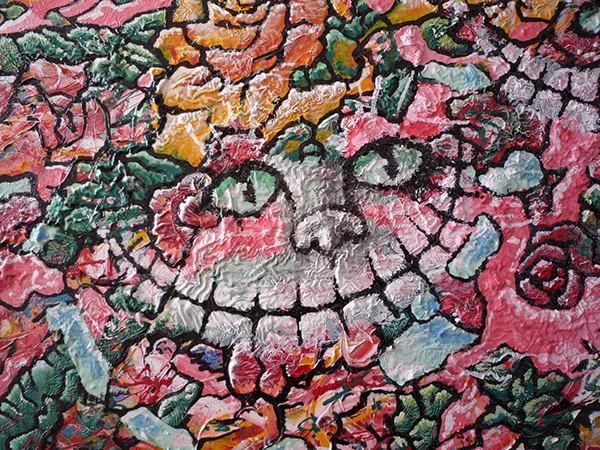Much to our dismay, 2020 will forever be remembered as the year of COVID-19, also known as the corona virus. In America are currently in our second week of attempting to isolate ourselves from this virus in the United States. As I write, 6 states – California, New York, Oregon, Connecticut, Illinois, and New Jersey – are on statewide shelter in place orders. We are asked to practice social distancing – stay home and curtail all no essential exposure to other people, places and things. In other words, don’t leave our homes unless we have to.
This is a trying time. Worldwide, we are in uncharted territory. There have been mass outbreaks of disease before, but not within the memory of most living adults. In 1918, the worldwide Influenza Pandemic killed over 500,00 million of people worldwide and an estimated 675,000 Americans. And this was during the times before the ease of travel that we take for granted in the 21st century. Researchers and public health officials are saying we are the beginning of an outbreak that could out pace that of 1918.
But before we panic, we need to try to calm ourselves, stay healthy and not risk exposing ourselves and loved ones to this virus unnecessarily. We all know the drill: wash our hands well and often, cough and sneeze into our elbow, don’t tough our eyes, nose, or mouth with soiled hands, and stay hydrated.
Where does oral health come into this have to do with oral health? Well, a lot. As we all began sheltering in place and restricting our movements, we were asked cancel non-essential medical and dental visits. One can see why we would want to avoid the medical office or clinic. They are swamped and that’s where people go when they are sick. But the dental office?
What we know about this virus is that it is spread through droplet or aerosol. That is why covering a cough is vital to reduce risk of transmitting this virus. One of the places where aerosol is common is the dental office setting. Dental drills, ultrasonic scalers the dental hygienist uses, and air/water syringes we use to rinse, all create invisible clouds of airborne particles. This is the reason oral health professionals wear surgical masks, protective gowns, and goggles. They help protect us from the airborne particles and potentially pathogenic (disease causing) germs and viruses that no only can splash on us, but tend to hang out in the air and settle on our clothes and faces.
Of course we worry about the patient’s health, as well. However, according to the Centers for Disease Control and Prevention, it takes about 10 minutes for the aerosol in the dental office setting to settle, reducing the patient’s risk of inhaling potentially harmful pathogens. To add to that, when you are in the room getting your teeth cleaned, it is your bugs you are being exposed to; not usually a problem for you. All that stated, what would otherwise be a regular visit to the dental office could be life threatening to the dental care provider if the patient has already unknowingly been exposed to COVID-19. This is where the story of the N95 masks begins.
Generally, in most healthcare settings, the standard surgical mask you are most used to seeing your dental hygienist wearing, prevents most pathogens from passing through to our noses and mouths. They generally keep us safe until they get wet, which occurs from our own breath and aerosols. This is usually about an hour. Then we need to replace them with a new mask for continued disease transmission prevention. We know the COVID-19 virus is small enough to pass right through this type of surgical mask. The only mask that prevents the clinician from inhaling the virus is the N95 mask. Dental offices generally do not carry or need to use these type of masks.
Back to your oral health. Let’s imagine you decided to cancel your dental hygiene care appointment on the recommendation of the American Dental Association and your local public health department. That is OK. Actually probably smart. For now. But what if this pandemic continues for months and the shortage of N95 masks prevents your dental office staff from safely treating patients. What happens to your oral health? Well, remember all those oral hygiene instructions your dental hygienist has given you over the years? You probably have a drawer in your bathroom full of proxibrushes, dental floss, interdental picks, and toothbrushes. Pull them out and start using them.
Your preventive home care can go a long way to preventing gingivitis and gum disease. If you can, purchase a water flosser , which can help you care for the teeth of those in your home unable to care for their own teeth, and those unable to dental floss properly. Whatever home care routine you have, strive to maintain it. Since most of us are home sheltering in place, we have time to rinse and spit after meals, reducing the food and debris left between our teeth. This is something our hygienist probably told us, but we were too busy to do it or forgot.
When stuck at home or working from home, snacking can be a challenge. Watch the sweets and acidic beverages you ingest. If you find yourself snacking all day, give your mouth the occasional swish and spit. Same with coffee or sugared beverage. Mix it up by drinking water every other cup of coffee.
A little extra prevention can go a long way to maintaining your beautiful smile. Just remember to call and reschedule that dental hygiene care appointment as soon as life gets back to normal.
Photo Credit “Smile” by Yury Gunaza is licensed under CC BY-NC-ND 4.0

